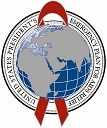In the last eight years, the controversial US President’s Emergency Programme Fund for AIDS Relief (PEPFAR) has pumped billions of dollars into HIV treatment and prevention programmes that has got millions onto ante-retroviral treatment (ART) programmes, and invested heavily in prevention programmes. In 2010 alone, PEPFAR supported treatment for 3.2 million people; averted 114,475 mother-to-child infections; and provided 32.8 million people with counselling and testing and 11 million with care and support, including 3.8 million orphans and vulnerable children.
It has not been without its critics (the website PEPFAR Watch is but one of a myriad of critics of it’s funding priorities and strategies). In particular its emphasis on ‘abstinence only’ programmes in African schools and a perceived underfunding and underemphasis on condom programmes. PEPFAR famously championed the ‘ABC’ (abstain from sex, be faithful to one sexual partner, use condoms appropriately) prevention approach that started in Uganda (allegedly with much more attention on the A & B than the C, although that is open to question). Christians in Africa and the West felt instinctively drawn to this approach, as it seemed to emphasise a Biblical approach to sexual relationships – faithful, monogamous and lifelong, and supported PEPFAR heavily. PEPFAR in return was keen to support faith based approaches to treatment, care and prevention.
Now it is being much trumpeted that under Obama, PEPFAR is moving away from the more conservative positions it holds on these (and many other) issues, and is moving towards a more ‘evidence based’ approach to preventions in its new strategy, published last month.
It depend on the evidence you wish to use of course – much of the early emphasis on ABC was based on the research done at the time – subsequent research has opened up new prevention strategies (e.g. male circumcision, the use of ART, etc.), and highlighted the weaknesses in the older ones, including the straightforward ABC approach. The assumption is that this marks a big shift in PEPFAR strategy, moving it away from the faith based groups that stick stubbornly to ABC.
The reality of course is far more complex. While some Christians still emphasise ABC (light on the C), many more have moved on in their thinking – also responding to evidence as well as ongoing theological reflection. At the heart of the Christian world view is an understanding of human beings as relational creatures, our identity stemming from our relationships, first with our Creator, and next with our fellow human beings and finally with the rest of Creation. Illness is not just a physical problem – it is a social/economic/political, environmental and spiritual problem as well. Hence many Christians are now championing approaches like SAVE, which seek a more comprehensive (and contextualised) approach to prevention.
SAVE stands for
Safe Practices (not just ABC, but also circumcision, clean needle exchanges, etc.)
Access to care, treatment and good nutrition
Voluntary, routine and stigma-free counselling and testing
Empowerment – especially of women and girls and marginalised communities.
Countries like Sierra Leone and Democratic Republic of Congo have woven this broad approach into their national HIV strategies, and churches and other faith groups and secular bodies worldwide have begun to use it. PEPFAR may not be promoting SAVE, but it is moving with the times and our expanding knowledge of HIV and how it spreads. This is not ideology, this is a practical response to a real problem.
It is sad that so many (on the left and the right) continue to attack PEPFAR and Christian groups responding to HIV in such narrow terms, but not surprising either. AIDS continues to generate strong emotions and ideological stances on all sides. What matters is no grandstanding, but what happens on the ground – the legacy of lives saved and hope offered to millions.




